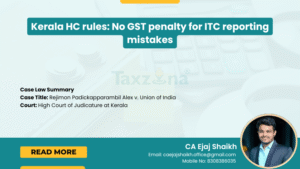What Are Accounting Principles?
The term “9 principles of accounting” refers to a set of generally accepted rules and guidelines that accountants and businesses must adhere to when preparing financial accounts. These guidelines aid in keeping all businesses’ books in the same order. Accounting in India is governed by the Indian Accounting Standard (Ind AS).
By establishing uniform guidelines, these 9 principles of accounting help to guarantee that all businesses in India are being forthright and honest when presenting their financial data. These ideas are extremely illuminating and clear up any accounting-related uncertainty. This is useful for when companies are subjected to audits from the outside. Everyone working in accounting needs to be familiar with these auditing standards because they are mandated by creditors, lenders, and investors.
The term “Generally Accepted Accounting Principles” (GAAP) is commonly used to refer to these standards (GAAP). Another consideration is that 9 principles of accounting standards are sector-specific and hence may not be applicable to other businesses. To succeed in the accounting profession, you need to be well-versed in both broad accounting concepts and those that are unique to your chosen specialty.
9 Principles of Accounting
To help you get started in the 9 principles of accounting field, we’ve compiled a list of the top nine accounting concepts.
Monetary Unit Principle:
According to the monetary unit principle, all dealings in business accounting must be conducted in Indian Rupees. Capital, assets, and liabilities are all measured and recorded in terms of money. Three buildings, two machinery, and one brand name cannot be listed as an organization’s assets.
Because of this, the monetary unit emphasizes reporting just monetary transactions. Other types of transactions, however, can be recorded independently. To apply this theory, we must first assume that money’s purchasing power does not decrease over time. Inflation is not a central idea in this approach.
Your company, for instance, spent 20 lakhs of rupees on a building in 2018. The structure has increased in price over the years, and now costs 40 lakhs in 2022. Based on the monetary unit concept, you are not allowed to record the same in your books.
Going Concern Principle
Under the going concern doctrine, a company is considered to be solvent if its operations can be expected to continue indefinitely. This signifies that there will be no dissolution or liquidation of the organization. According to this theory, if a company expects to continue operating and realizing advantages from an asset, then it should be recorded as an asset rather than a cost.
According to the going concern concept, businesses that make large purchases like machinery should record those purchases as assets instead of expenses. The accountant will be able to divide the machine’s total price by its expected lifespan in this way.
The going concern principle benefits investors because it guarantees a return on their money. Due to the elimination of the going concern accounting services in Mumbai and its principle, businesses will be required to reveal all of their costs immediately rather than postponing any of them.
Dual Aspect of the Duality Principle
Every company, according to the duality 9 principles of accounting, ought to keep tabs on its financial dealings in a minimum of two different places. The company will feel the effects of both the purchase and the opposite purchase equally. This idea is crucial to the process of preparing financial reports and the practise of double-entry bookkeeping. For the dual aspect principle, the equation is as follows:
Assets = Liabilities + Equity
When a transaction takes place, the same amount will be recorded in both a credit and a debit entry, as described by the principle. If a company uses a check to buy computers and laptops, for instance, the accountant has to think about the impact on the company and the impact on the company’s finances. Machine ownership counts as an asset on the positive side, while a decrease in cash reserves counts as a liability.
As a result of applying this accounting principle, auditors can better spot inconsistencies and discrepancies in the financial reports they review.
Cost Principle
Under the cost principle, assets are recorded at the original purchase price rather than their current market value. Delivery and set-up are figured into the final price.
If a company pays 2,00,000 on a piece of equipment used in the production of cosmetics, plus 2,000 for installation and 800 for shipment, the total cost of the equipment is 2,02,800. Even if the market value of the same piece of machinery has increased to Rs. 5,000,000, the purchase price recorded in the books will remain at Rs. 2,02,800.
The acquisition price is referred to as the historical cost because the cost principle is concerned with past expenditures. According to the cost principle, therefore, assets cannot be recorded in the financial statements if there was no outlay of funds to acquire them. Goodwill is an intangible asset, thus it doesn’t appear in the books until a company actually pays for it.
Realization Principle
According to the realisation principle, a company should only report earning on a deal if that money has actually been received. According to this theory, a company generates income whenever it receives payment in cash or kind in exchange for providing a product or service to a customer. As a quick summary, the realisation 9 principles of accounting concept states that revenue is recognised when it is earned, rather than when it is received.
If a software as a service (SaaS) firm receives a Rs. 4,000,000 accounting software purchase, for instance, the firm will have to allocate that sum across multiple customers. By December 31, 2021, the company will have delivered SaaS software worth Rs. 1,000,000; the remainder of the order will be delivered in January of 2021. Because an order is not income until the product or service is delivered to the customer, the SaaS company will earn a total of 1,00,000 in 2020.
Accrual Principle
The accrual concept is a cornerstone of accounting and one of its most important ideas. It stipulates that transactions must be recorded in the accounting period in which they occur, regardless of when the cash flow from the transaction is received.
In other words, companies should not wait until the period in which they are actually paid to report income that has already accrued to their accounts. A company must also report accrued expenses in the accounting period in which they occur, not the period in which they are paid.
In addition, this 9 principles of accounting concept suggests that a company record all prepaid costs in the same accounting period in which they were incurred. As a result of using the accrual accounting concept, a company may be assured that its costs will never exceed its income for a given fiscal quarter.
Companies providing power, water, or gas to homes and businesses in India often send out bills once a month. Even if the customer won’t pay until the following month, the firm’s accountant nevertheless records the income when the company sends the bill at the end of the month.
Matching Principle
According to the matching principle, a company’s expenses should be included in its income statement at the same period as the company recorded the corresponding revenue. Therefore, the company should use the accrual principle to assign the revenue to the correct accounting period whenever it becomes receivable.
In the event that the company must delay the recognition of revenue until the following accounting period, the related costs must also be deferred until the following period.
If a jewellery store spends Rs. 1,80,000 on social media marketing in 2023, but those efforts will likely pay off in three separate 9 principles of accounting periods (2021, 2022, and 2023), then only Rs. 60,000 of that amount will count as an expense in 2023. In 2021 and 2021, the accountant will disclose the balance.
Consistency Principle
If the consistency principle were to be applied, a company that adopted a particular 9 principles of accounting or method would be required to continue using that principle or method for all future accounting periods, at least until an alternative became available.
Auditors might benefit from adhering to the consistency principle since it facilitates the comparison of financial outcomes across accounting periods. Consistency in recording financial transactions helps to clear up any misunderstandings and shed light on how a company treats certain statistics and information when reporting them. If a store reports its 2018 financials using the last-in, first-out (LIFO) technique, it cannot change to the first-in, first-out (FIFO) approach in 2019.
Full disclosure Principle
In accordance with the full disclosure principle, accountants reveal all material information in the financial accounts. The data may include operational and financial details, such as how a company keeps its books. Observance of this concept prevents the dissemination of false or misleading data to those who may use it, including users, investors, creditors, and readers.
All relevant information, such as the 9 principles of accounting approach used and any non-monetary transactions, should be included.
Read More: Common Accounting Errors and How to Prevent Them – An Ultimate Guide








